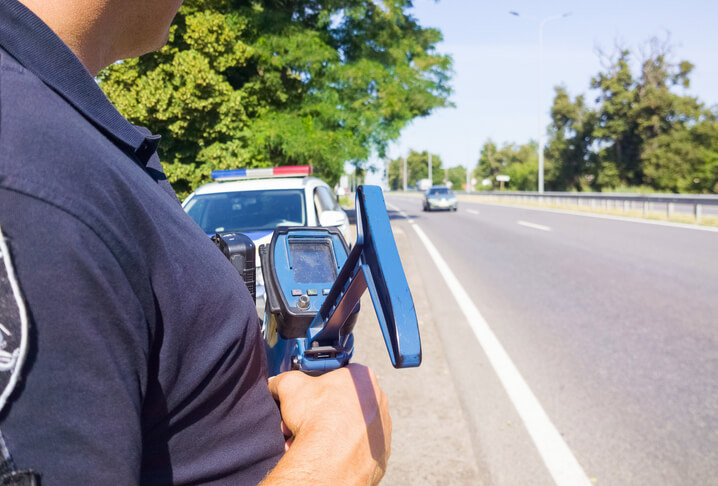Some of the most common traffic citations in New York are speeding tickets. Convictions for speeding can come with severe legal and financial consequences. Sadly, many people charged with a speeding ticket admit fault and pay the fines without considering legal representation.
You have the legal right to fight the charges in court if you have been cited for speeding.
In most New York speeding cases, law enforcement relies on radar guns as primary evidence. Unfortunately, many of these devices can be faulty, unreliable, or handled incorrectly. As such, a ticket attorney can present various weaknesses in speeding cases and fight to have your charges dismissed or reduced.
If you’ve been charged with speeding, learn how a ticket attorney can help you avoid the consequences of a speeding conviction.
Radar Guns Explained
Traditional radar guns are handheld or stationary devices that detect speed by bouncing a radio wave off your car while in motion. These devices calculate speed by measuring the time it takes for the signal to travel back and forth between your vehicle and the gun.
Most speeding tickets in New York rely on such technology, including:
- Portable radar guns
- Car-mounted radar units
- Stationary radar devices
- Laser or LIDAR guns and units
When these devices are not calibrated properly or well maintained, they can lead to inaccurate results. Additionally, other factors may contribute to incorrect readings.
How to Fight Radar Gun Charges
If a police officer used a radar gun, there are several defenses that an attorney may look to establish when you fight your ticket in court.
Some common ways radar guns can return false or inaccurate readings include:
Improper Calibration
Like any measuring device, police must calibrate radar guns regularly to ensure they are working correctly and returning accurate results. Although many of these devices come equipped with internal calibration settings, tuning forks are the industry standard for maintenance and calibration.
An attorney may request calibration records to check if law enforcement calibrated the device on the day in question. If the evidence shows officers did not calibrate the radar gun, this may result in dropped or reduced charges.
Inclement Weather
Poor weather conditions can result in poor readings from radar guns. Rain, snow, and fog can interfere with these guns’ radars or light signals. When interference happens, the range of the device becomes reduced and may fail to read the speed of your vehicle accurately.
An attorney may present evidence that weather and other environmental factors caused a faulty reading.
User Error
Though radar guns may seem like reasonably simple devices, law enforcement must undergo special training to use and maintain these units effectively.
Many times, human error can result in faulty readings. Your attorney may try to prove that an officer’s incompetence was at fault. In some cases, officers may have even targeted the wrong car.
Defective Equipment
Similar to calibration, radar devices can be defective or present maintenance issues. Police departments must log when a device is repaired. As such, a seasoned traffic ticket attorney may request records to show that the device in question may have a history of poor performance.
Why fight a speeding ticket in New York?
New York has strict traffic laws. When you plead guilty to a traffic ticket, you can face numerous consequences, including:
- Expensive fines
- Additional surcharges
- Points on your driving record
- Increased auto insurance premiums
- License suspension or revocation
- Jail time
Convictions for speeding violations can follow you for years to come. If you care about your driving record, you should consult with a traffic ticket attorney to learn about your options in court.
New York Traffic Ticket Lawyers represent clients all across Central New York. If you received a ticket for speeding, contact us today to review your case.

